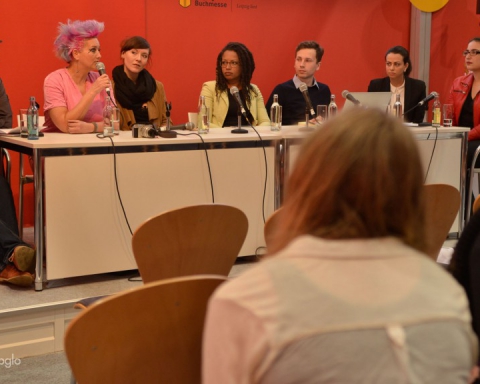The number of books I read in 2016 was a modest 22. Of those, I am picking 12 for a short presentation (corresponding to each month of the year). You probably have already read most of them, as some are classics and some others were published a couple of years ago. But lists are the thing to do this time of the year, so I thought it might be fun.
Chimamanda Ngozi Adichie: Americanah
A Nigerian girl leaves her country and her boyfriend in order to study in the USA. Her boyfriend leaves for the UK, but this is not the whole tale. Not just another love story but surely not advisable for the recently heartbroken. However, the book is a realistic observation of Nigerian and American society, with excellent and original remarks about all kinds of discrimination and stereotypes.
I found it very well-written and I can recommend it warmly.
Some of my friends were a bit disappointed by its ending, but I wasn’t.
Ilka Piepgras: Meine Freundin, die Nonne (My friend the nun)
This one I read in German and as far as I know, it hasn’t been translated into English. It’s the true story of two German girls who are best friends. The author is surprised to hear that her friend, who aspired to be an artist, has decided to leave all worldly pleasures and become a nun in a Greek convent. Now they are both adults; and the author who in the meantime became a journalist, decides to pay her friend a visit and find out why she chose this path. She will be introduced to the nuns’ daily routine, their days of hard work and incessant prayers. The two old friends will accept each other’s differences and the author will draw some conclusions. Interesting for those who have no idea about Greek Orthodox Christian spirituality. It is something like a beginner’s guide.
H.G.Wells: The Country of the Blind
A short novel or a long short story, this one reminded me of J. Saramago’s Blindness. A man is lost in a valley of Ecuador where a forgotten tribe lives completely secluded from the world. They are all blind and the man, who has no problem with his eyes, keeps saying to himself, “In the Country of the Blind, the One-Eyed Man is King.”
Soon he will fall in love with a girl, but he will also face a very hard dilemma.
This is of course an allegorical text, exactly like the aforementioned book by Saramago. The “One-Eyed” or, in this case, “Two-Eyed Man” will try to impose his knowledge as someone who can see and knows better, but in the valley of the blind this won’t be so easy.
Alaa Al-Aswany: The Automobile Club of Egypt
The author is well-known thanks to another book, The Yacoubian Building, which has been turned into a film. In The Automobile Club of Egypt, we follow the lives of three brothers and of their sister. They are children of a man who used to work in the eponymous Automobile Club of Egypt – an exclusive place where the King of Egypt as well as many rich and famous people often meet. The world of the rich is very different from that of the poor; and in-between there are those who belong to a middle level and are menial to the former and cruel to the latter. I found the book a bit too long for my taste, but a good book on the whole, depicting very well a certain historical period.
Banana Yoshimoto: Goodbye Tsugumi
Tsugumi is a spoilt girl who makes life miserable for her sister Yoko and for her cousin Maria. They have to put up with her because she suffers from a life threatening illness, and they are afraid that one of these days she will not be with them anymore. Maria, the narrator of the story, doesn’t only have to deal with the impossible Tsugumi. Also her father, who had been married to another woman, has finally decided to divorce her and marry her mother.
All of a sudden, he wants to be a perfect father and create the perfect home. But this is easier said than done.
This book creates a beautiful atmosphere for the reader – it has something so melancholic, the sense of a summer about to end, and the pictures created by the author’s words are great. I liked it a lot.
F. Dostoyevsky: The Possessed
Dostoyevsky is one of my favourite authors of all time, and I am not alone in my admiration for him. What I love about his writing is not so much the plot but the characters he creates. His protagonists seem to be possessed either by an absolutely evil force or by something angelic that comes directly from heaven. Or sometimes by both. And this is what makes Dostoyevsky so unique. During his lifetime, he suffered from epilepsy, lost all his money in gambling sprees, and had to suffer for his political beliefs in Siberia. But I am convinced that this talented man became great on the day that he was to be executed and received a pardon from the Czar. Such an experience must have transformed him.
Oh, I was carried away and forgot to tell you about the book. But does it really matter?
All his books are great and my personal favourite is The Brothers Karamazov.
Jetta Carleton: Clair de Lune
In 1941, in southwest Missouri, a young woman finds a job as junior college teacher in a small town. There she will meet two young men, George and Toby, and the three of them will spend a lot of time together talking about books and music and many other things. But soon love will get in the way, and the young woman, who lives in very conservative times, will start feeling strange. Like the next book on this list, this one is an American novel dealing with Academia in Missouri. It is not, of course, as powerful as Stoner, but it has a certain literary worth.
John Williams: Stoner
Stoner is an anti-hero created by the pen of John Williams. What is interesting about this book is that it was written in the sixties, when it wasn’t a big success, but was rediscovered some years ago and became a hit. In Europe at least. Its protagonist, William Stoner, is a quiet man; there is nothing glamorous about him. Neither the facts of his life, nor his relationships with other people. There is, however, one thing that characterizes him. His calmness, his innate kindness, seems to irritate some people, like his wife or his colleague, Lomax. They will declare war to him and Stoner will never know why.
This is an excellent novel; one is tempted to call it existential as there are so many questions raised in it.
Roald Dahl: The Complete Adventures of Charlie and Mr. Willy Wonka
Now, this needs no introduction, of course. But I must admit that I hadn’t read it, although I have seen the film with Johnny Depp. I admired the imagination of the writer Roald Dahl, and laughed out loud sometimes. As you probably know, it’s the story of a poor boy who is guided through the chocolate factory of the eccentric Willy Wonka along with some other children. Accompanied by his grandfather, little Charlie will have some unforgettable experiences and will receive an unexpected present by the great Mr.Wonka himself. There is a second part to the book which takes the readers on a trip to space. A pleasant read for young and old.
Matt Haig: Reasons to Stay Alive
It takes a lot of courage to talk openly about your illness, particularly when this is called depression.
Matt Haig found the strength to relive the traumatic details of his first encounter with the “black dog” and create a book that is not only an autobiographical account, but a manual for depressive people as well. In the course of his life, he was to make some big decisions regarding his illness. First, he would not take medication. Second, he would find reasons to stay alive. These reasons would include creating a family and writing books. And many more. I read the book twice and I believe that it is very helpful for people who suffer from depression or for their relatives. Matt Haig explains to the layman what to expect from this horrible illness that doesn’t even look like a real illness, where to look for hope, how to go on living.
Therese Sellers: Advent Calendar Haiku
Inspired by her son’s Advent Calendar, Therese Sellers writes some lovely haikus about Christmas. She observes an ice skater, she counts the Christmas lights as she comes home from work, she knits a Christmas stocking, she creates a gingerbread house. Her verses convey all the sweetness, the coziness, the happiness of the festive times. Not much is needed for such an uplifting atmosphere – the most important ingredient is love and tenderness. A small white book that could make an excellent Christmas present.
Penelope Fitzgerald: The Blue Flower
Based on the biography of the poet and philosopher Novalis, this one takes place not far from Leipzig. Weißenfels and Jena are some of the cities mentioned in the book. Very well-written even for people who have never read a line by Novalis.
Readers will learn about his background, his religious family, his numerous siblings, as well as about his studies in various universities of Germany, Leipzig included.
In the center of all this stands an unusual love story: At age 22, Novalis would fall in love with Sophie who was only 12 years old!











